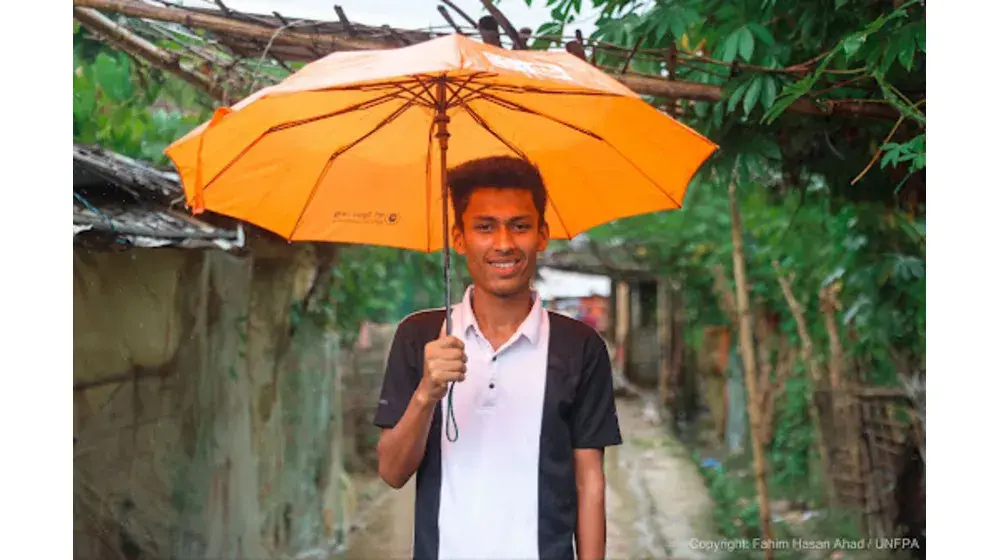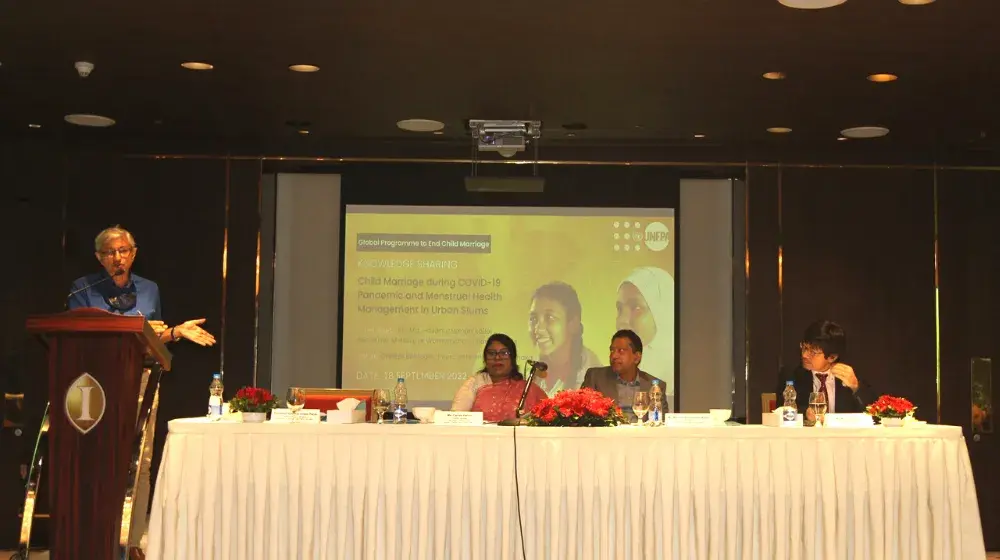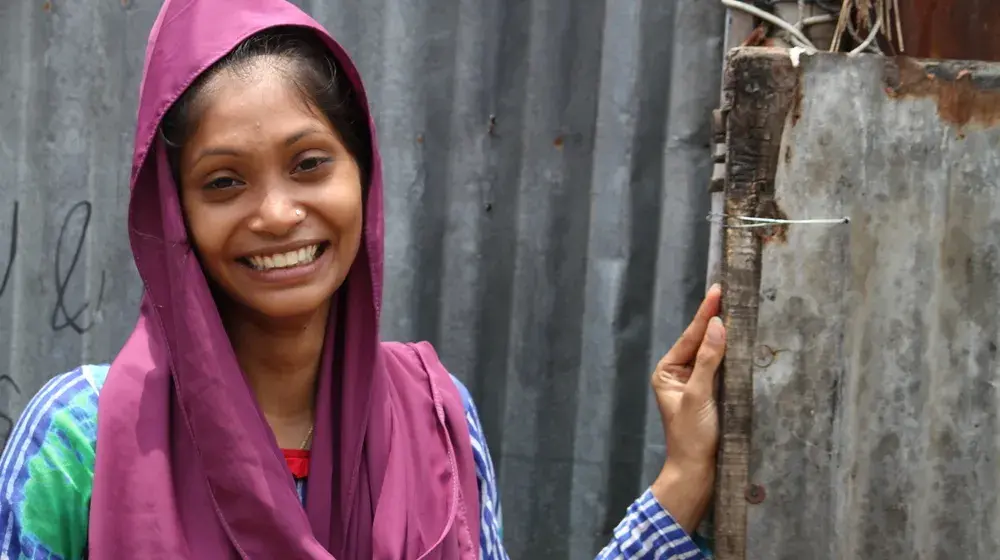Arifa Akter* is a 12-year-old girl from Ukhia District near the Rohingya camps of Cox’s Bazar. Since the age of 7, Arifa has been diagnosed with a hearing and speaking impairment, which seriously complicates her daily life as an adolescent girl.
Arifa’s father, who runs a small shop in a local bus station, is the sole breadwinner of the family of five and affording medical care for Arifa’s disability is often challenging. As nobody in the family speaks sign language, Arifa also often faces difficulties in communicating her needs to her family. Without a common language, she also struggles to make friendships with other girls in the community.
Unlike many young people with disabilities, however, Arifa was lucky to be able to attend primary school, where she developed a passion for drawing and painting. Her talent is a great source of pride for the family and over the years, Arifa has also discovered art as a great way of communicating with them.
However, after the COVID-19 pandemic shook Bangladesh in 2020 and resulted in schools closing in all parts of the country, Arifa found herself with no place to go. That is until she and her mother Rojina* discovered the UNFPA-supported Women Friendly Space near her house.
Arifa began to go to the Women Friendly Space to socialize with other girls her age, as well as to learn about issues relevant to youth and adolescents through the life skills training offered by the facility.
Before finding the Women Friendly Space, Arifa had gone through a traumatic experience of waking up covered in blood in the middle of the night. Scared and confused, she had run out to get help from her mother. Holding Arifa tightly in her arms, Rojina explained to Arifa that she had had her first period, which is part of the natural path from girlhood to womanhood.
Despite being comforted by her mother’s explanation, Arifa quickly ran into troubles with managing menstrual hygiene as her family lacked the means to buy her sanitary pads. Fortunately in March 2021, the Women Friendly Space that Arifa had begun to go to started distributing UNFPA’s Menstrual Hygiene Management kits to adolescent girls in the community. The kits were distributed with funding from the Foreign Commonwealth and Development Office and they included everything from soaps and detergent powders to sanitary pads and information on menstrual cycles.
Receiving her first ever sanitary pads with the kit brought Arifa to the brink of tears. For the first time ever, she would be able to go out even during her period. According to her mother, this increased autonomy has made Arifa much more confident and relaxed. Despite her disability, she is now ready to take on the world knowing her dignity will be guaranteed.
*The names of the people in the story have been changed




